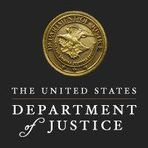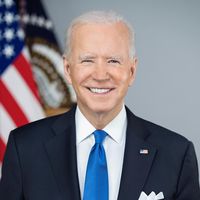The Political Storm of Biden's Pardon: A Family Affair or a Political Misstep?
December 3, 2024, 9:37 pm

Location: United States, District of Columbia, Washington
Employees: 10001+
Founded date: 1789
Total raised: $6.5M

Location: United States, District of Columbia, Washington
Employees: 1001-5000
Total raised: $500K
In a move that sent shockwaves through the political landscape, President Joe Biden granted a full and unconditional pardon to his son, Hunter Biden. This decision, made just weeks before Biden's term ends, has ignited fierce debates across the political spectrum. Critics on both sides are raising alarms, claiming the pardon undermines the integrity of the justice system and sets a dangerous precedent.
Hunter Biden's legal troubles have been a long-running saga. Convicted of lying on a federal form while purchasing a gun and pleading guilty to tax evasion, Hunter's case has been marred by allegations of political targeting. The president's announcement came as a surprise, especially given his previous statements asserting he would not intervene in his son's legal matters. Biden had promised to uphold the integrity of the justice system, a promise that now hangs in the balance.
The timing of the pardon raises eyebrows. With Hunter facing sentencing for serious charges, Biden's decision appears to be a protective measure. The president argued that his son was "singled out" due to his familial ties, suggesting a politicized prosecution fueled by his political adversaries. This claim resonates with many who believe that the justice system has been weaponized in recent years. However, it also opens the door for accusations of hypocrisy, especially from Republicans who have long criticized the Biden family.
Republicans wasted no time in seizing the opportunity to attack Biden. They argue that the pardon is a blatant display of favoritism, a privilege reserved for the powerful. The backlash was swift and fierce, with conservative commentators labeling Biden a "liar" and accusing him of undermining the rule of law. The political ramifications are significant. Critics fear that this pardon could embolden future presidents to use their pardon powers for personal gain, eroding public trust in the justice system.
On the Democratic side, the reaction is mixed. Some party members express concern that Biden's actions could be used against them in future political battles. They worry that the precedent set by this pardon could be exploited by Trump or other political adversaries. The fear is palpable: if Biden can pardon his son, what’s to stop a future president from pardoning insurrectionists or other politically charged figures? The implications are vast and troubling.
Biden's defenders argue that the pardon was necessary to protect Hunter from ongoing political persecution. They contend that the younger Biden has faced relentless scrutiny and attacks, which have taken a toll on his mental health and sobriety. The president's statement emphasized that Hunter's struggles with addiction should not be politicized. This perspective resonates with many who believe in the importance of compassion and understanding in the face of personal challenges.
Yet, the White House's defense of the pardon has not quelled the storm. Press Secretary Karine Jean-Pierre reiterated that Biden believes in the justice system while simultaneously asserting that Hunter was unfairly targeted. This duality raises questions about the administration's commitment to upholding the law. Critics argue that the president's actions contradict his stated beliefs, creating a narrative of inconsistency that could haunt him and his party.
The political landscape is shifting. With Trump poised to take office again, the stakes are higher than ever. The former president has already hinted at using Biden's pardon as justification for his own potential pardons. This could lead to a cycle of political retribution, where each party retaliates against the other, further eroding the integrity of the justice system.
As Biden's presidency draws to a close, the legacy of this pardon looms large. Will it be seen as a protective act of a father, or a misstep that tarnished his administration? The answer may depend on how the political landscape evolves in the coming months. The potential for future abuses of power hangs in the air, a specter that could haunt both parties.
In the end, Biden's decision to pardon Hunter Biden reflects the complexities of family loyalty intertwined with the harsh realities of political life. It raises fundamental questions about justice, privilege, and the role of personal relationships in governance. As the dust settles, one thing is clear: the political storm surrounding this pardon is far from over. The implications will ripple through the halls of power, shaping the narrative for years to come.
In a world where the lines between personal and political are increasingly blurred, Biden's pardon serves as a stark reminder of the challenges facing leaders today. The quest for integrity in governance is fraught with pitfalls, and the path forward remains uncertain. As the nation watches, the question lingers: what does this mean for the future of justice in America?
Hunter Biden's legal troubles have been a long-running saga. Convicted of lying on a federal form while purchasing a gun and pleading guilty to tax evasion, Hunter's case has been marred by allegations of political targeting. The president's announcement came as a surprise, especially given his previous statements asserting he would not intervene in his son's legal matters. Biden had promised to uphold the integrity of the justice system, a promise that now hangs in the balance.
The timing of the pardon raises eyebrows. With Hunter facing sentencing for serious charges, Biden's decision appears to be a protective measure. The president argued that his son was "singled out" due to his familial ties, suggesting a politicized prosecution fueled by his political adversaries. This claim resonates with many who believe that the justice system has been weaponized in recent years. However, it also opens the door for accusations of hypocrisy, especially from Republicans who have long criticized the Biden family.
Republicans wasted no time in seizing the opportunity to attack Biden. They argue that the pardon is a blatant display of favoritism, a privilege reserved for the powerful. The backlash was swift and fierce, with conservative commentators labeling Biden a "liar" and accusing him of undermining the rule of law. The political ramifications are significant. Critics fear that this pardon could embolden future presidents to use their pardon powers for personal gain, eroding public trust in the justice system.
On the Democratic side, the reaction is mixed. Some party members express concern that Biden's actions could be used against them in future political battles. They worry that the precedent set by this pardon could be exploited by Trump or other political adversaries. The fear is palpable: if Biden can pardon his son, what’s to stop a future president from pardoning insurrectionists or other politically charged figures? The implications are vast and troubling.
Biden's defenders argue that the pardon was necessary to protect Hunter from ongoing political persecution. They contend that the younger Biden has faced relentless scrutiny and attacks, which have taken a toll on his mental health and sobriety. The president's statement emphasized that Hunter's struggles with addiction should not be politicized. This perspective resonates with many who believe in the importance of compassion and understanding in the face of personal challenges.
Yet, the White House's defense of the pardon has not quelled the storm. Press Secretary Karine Jean-Pierre reiterated that Biden believes in the justice system while simultaneously asserting that Hunter was unfairly targeted. This duality raises questions about the administration's commitment to upholding the law. Critics argue that the president's actions contradict his stated beliefs, creating a narrative of inconsistency that could haunt him and his party.
The political landscape is shifting. With Trump poised to take office again, the stakes are higher than ever. The former president has already hinted at using Biden's pardon as justification for his own potential pardons. This could lead to a cycle of political retribution, where each party retaliates against the other, further eroding the integrity of the justice system.
As Biden's presidency draws to a close, the legacy of this pardon looms large. Will it be seen as a protective act of a father, or a misstep that tarnished his administration? The answer may depend on how the political landscape evolves in the coming months. The potential for future abuses of power hangs in the air, a specter that could haunt both parties.
In the end, Biden's decision to pardon Hunter Biden reflects the complexities of family loyalty intertwined with the harsh realities of political life. It raises fundamental questions about justice, privilege, and the role of personal relationships in governance. As the dust settles, one thing is clear: the political storm surrounding this pardon is far from over. The implications will ripple through the halls of power, shaping the narrative for years to come.
In a world where the lines between personal and political are increasingly blurred, Biden's pardon serves as a stark reminder of the challenges facing leaders today. The quest for integrity in governance is fraught with pitfalls, and the path forward remains uncertain. As the nation watches, the question lingers: what does this mean for the future of justice in America?